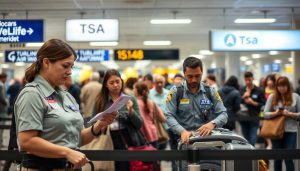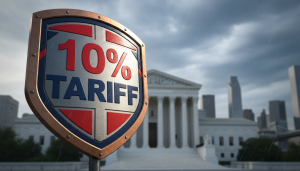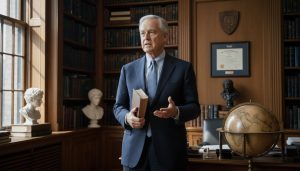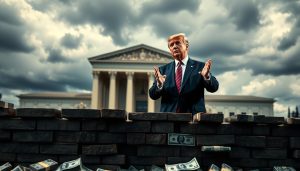President Trump Executive Order: No More Cashless Bail Across the Country
Discover the impact of the Executive order: No more cashless bail across the country on criminal justice reform and public safety.
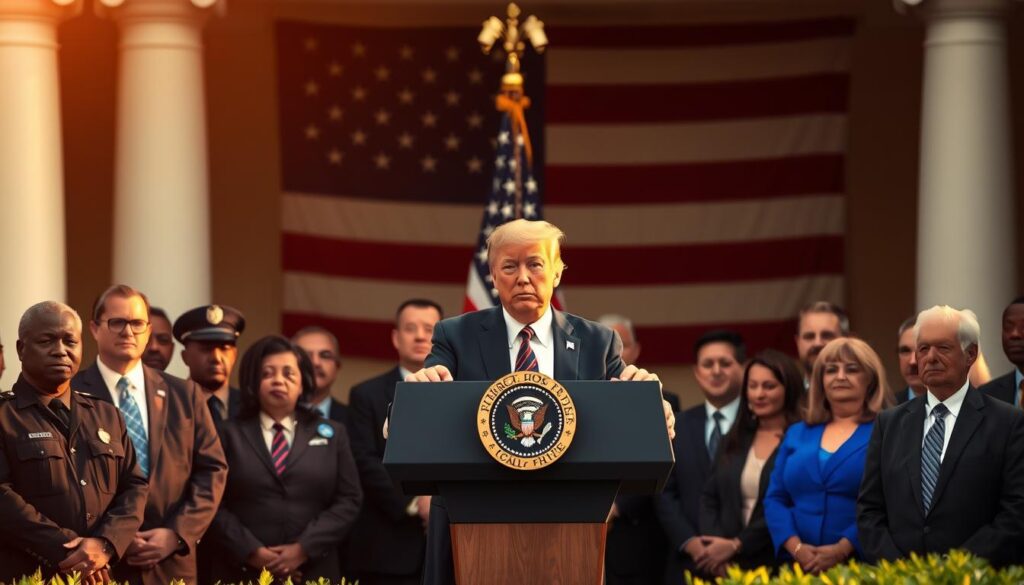
Executive order: No more cashless bail
President Trump Executive Order: No More Cashless Bail: On Monday, President Donald Trump signed an executive order. It aims to stop cashless bail in Washington, D.C., and other places in the U.S. This change aims to make sure people are safe before they go to trial.
As Axios first said, the order helps D.C. and other places, too. It instructs law officers to send arrested individuals to federal jail whenever possible. This significant change could make our communities safer by reforming the bail system.
No More Cashless Bail Key Takeaways
- Executive order: No more cashless bail across the United States, aimed at keeping prisoners in jail.
- President Trump signed an executive order targeting the removal of cashless bail systems.
- The order extends its reach beyond Washington, D.C. to other jurisdictions.
- The policy shift aims to revise the pre-trial detention process for suspects.
- Law enforcement officials in D.C. are directed to transfer arrestees to federal custody whenever legally permissible.
- The executive order could significantly impact public safety and criminal justice procedures nationwide.
Overview of President Trump’s Executive Order on Cashless Bail
President Trump signed an executive order. It significantly changes the legal system. It’s part of a significant overhaul of the criminal justice system.
This order instructs places with cashless bail to change their policies. It might upset the current way things are done.
Details of the Executive Order
The executive order details a tough plan for places with cashless bail. It says the government might stop giving them money. This is if they don’t follow the rules.
The Attorney General, Pam Bondi, will find these places. She will make sure they follow the rules. This could mean no more federal money.
Objective and Rationale
President Trump wants to change the legal system. He thinks cashless bail is bad. He says it lets dangerous people go free.
He points to New York and California. He says crime rates went up because of cashless bail.
Impacted Jurisdictions
Places like Washington, D.C., and Illinois are affected. They have cashless bail programs. The government might change how it gets money.
Washington, D.C., might face legal trouble if it doesn’t change. The criminal justice overhaul means more government watching. Everyone must follow the new rules.
Responses and Reactions
President Trump’s new rule on cashless bail has caused a big stir. People have strong opinions about it. It’s changing how we talk about crime and justice.
Supporters’ Perspectives
Those who support the rule say it makes us safer. They think it keeps bad people from getting out too easily. They believe police will be happier because they won’t have to deal with as many criminals.
Supporters also believe it enhances the justice system. They say it helps keep people from committing crimes again. For example, in New York, a man with 45 arrests shows why we need this rule. For more on this, check out NY Post.
Critics’ Arguments Against the Order
But others are worried. They think the rule hurts poor people. They say it’s unfair to keep them in jail because they can’t pay bail. This makes the justice system even more crowded.
They also worry about jails getting too full. They think we need to find a better way than just cash bail. For more on this, see this guide to Supreme Court reform.
Impact on Jurisdictions with Cashless Bail Policies
President Trump’s order to stop cashless bail will change many places. Cities like Washington, D.C., have used cashless bail for a long time. They now need to adjust their bail handling procedures to comply with the new rules.
Changing the bail system is a big job. Places must plan carefully to make new rules that fit the federal order. Making sure the rules work well is very important.
Illinois eliminated cash bail in 2023. Now, they might need to change back because of the new order. They will have to work together to make sure everything goes smoothly.
Places like New Jersey and New Mexico will also face significant changes. They will need to ensure their new rules function effectively. A report from 2024 shows that changing bail rules can be tricky.
To learn more about these changes, check out this article and more details.
Executive order: Conclusion
The executive order summary examines President Trump’s plan to eliminate cashless bail systems in the U.S. This significant step aims to enhance public safety and reform the criminal justice system. It focuses on places where cashless bail has led to more crime.
Crime rates have gone down in Washington, D.C., and Chicago. This suggests that stricter bail rules could help prevent more crimes.
People are talking a lot about this. Some think it will make things safer. Others worry it will hurt poor people too much.
This talk shows how hard it is to decide on bail systems. Both sides have good points. We need to think about these carefully.
The executive order summary is essential for America’s future. It tries to keep everyone safe while being fair. To learn more, watch for talks in public and the news.
No more cashless bail FAQ
What is the main focus of President Trump’s executive order on cashless bail?
The order aims to stop cashless bail in Washington, D.C. It also plans to reach other places in the U.S. with the same policy.
What actions might be taken against jurisdictions that do not comply with the new bail policy?
Places that don’t follow the order might lose federal money. Attorney General Pam Bondi could also take legal steps.
Why do supporters of the executive order believe it will enhance public safety?
They think it will make the streets safer. They believe it will keep bad guys locked up before trial.
What concerns do critics have regarding the executive order on cashless bail?
Critics worry it will hurt the poor. They say it could fill up jails with more people. They think it’s unfair to those who can’t pay bail.
How long has Washington, D.C. had a cashless bail policy in place?
Washington, D.C. has had it for 30 years, starting in 1992.
What changes are expected in jurisdictions that currently have cashless bail policies?
Places with cashless bail will have to change. They might need to update laws and ensure compliance with federal rules.
What are the overarching goals of President Trump’s executive order on cashless bail?
The order wants to make the streets safer. It aims to reform the justice system to increase the use of cash bail.
How might this executive order alter the landscape of criminal justice reform?
This order could change how we handle suspects before trial. It might lead to significant changes in justice and laws across the U.S.



